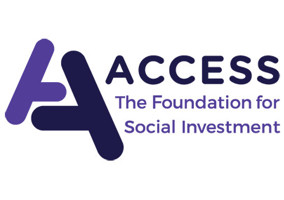A specialist blended finance wholesaler for the UK social investment market should be created with £300m of government funding, according to a new report.
New Philanthropy Capital (NPC) found continued government subsidy was needed for smaller charities to access blended finance, which is designed to make borrowing more affordable for voluntary, community, and social enterprises (VCSEs).
NPC recommended that the government should fund blended finance provider Access to become a wholesale provider of grant subsidy and investment capital into blended finance.
The Department for Digital, Culture, Media, and Sport (DCMS) commissioned NPC to independently review the future of grant subsidy for blended finance to support the growth of charities and social enterprises.
Blended finance combines grants and loans and aims to attract more money to invest in VCSEs.
The report reviews the use and impact of blending grant funding with investment capital as a subsidy to support lending to civil society in England and reviews potential options for how to deliver it in the future.
This included reviewing what would happen if the government were to stop subsidising blended finance.
Impact of blended finance
The current main source of blended finance in the UK is been Access: The Foundation for Social Investment.
Founded in 2015, it has five key blended funds: Growth Fund, Local Access, Covid Emergency Lending, Flexible Finance for the Recovery and Enterprise Growth for Communities.
The reports states that nearly half (46%) of blended finance funds have been given to organisations working in the 30% most deprived places in the UK.
It also found that majority of deals (78%) have been with organisations under £1m of turnover, with over a quarter (28%) going to organisations under £100,000.
Taking a sample of recipients from the Growth fund, the report found that 41% of organisations said that they intended to increase their number of beneficiaries with the funding, and 33% said it would allow them to produce a better quality intervention for the existing beneficiaries.
Subsidies
The report said that without subsidies “the cost of a loan would be too expensive for smaller and growth stage VCSEs to take up the finance”.
It adds that there are “few” non-governmental sources of subsidy and interviewees believed that “government subsidy was necessary for blended finance to grow or be maintained”.
Recommendation
The report outlines four possible options for the future of blended finance, but recommends that a specialist blended finance wholesaler for the UK social investment market is established.
This would work be reendowing Access so it becomes “a permanent actor in the market, and capitalising it as a wholesale provider of both grant subsidy and investment capital into blended finance”.
“However, we recognise that for this to work, it requires a significant capital outlay of at least £300m, exceeding what has been given to blended finance as grant subsidy to date,” the report said.
Access: Flexible finance for charities should be key government priority
Seb Elsworth, chief executive of Access, said: “This adds further weight to the growing evidence around blended finance. Demonstrating that it is an effective mechanism for driving positive change in some of our most underserved communities and getting finance to the places where it is needed most.
“Given the report’s conclusion about the ongoing role for government in providing subsidy into blended finance, the potential to deliver something transformational for underserved places and communities is huge.
“Meeting the need for this sort of patient and flexible finance for trading charities and social enterprises – precisely the sort of ‘enterprise-centric’ finance recently called for in the Adebowale Commission on Social Investment – is central to delivering the Levelling Up agenda and should be a key priority going into the consultation on the future of dormant assets this summer.”
Related articles












